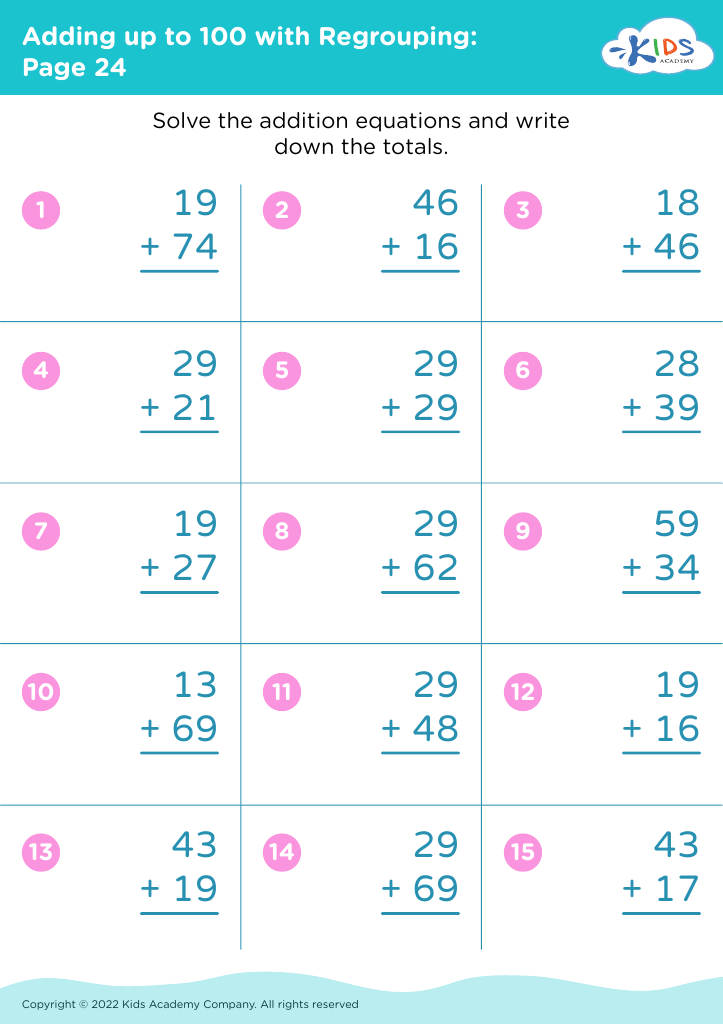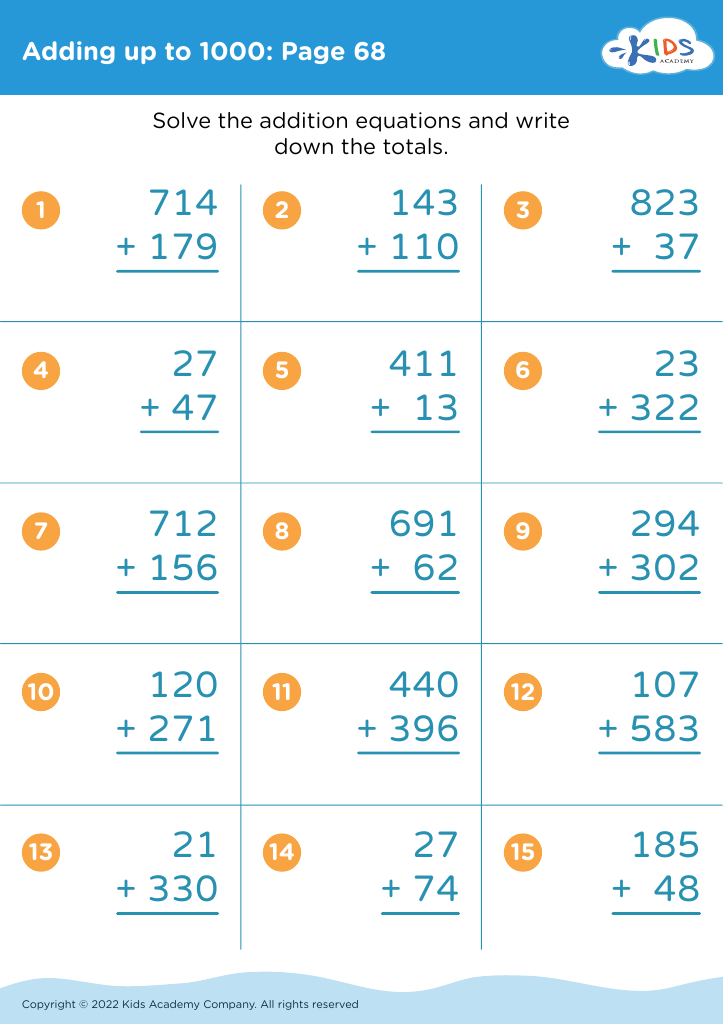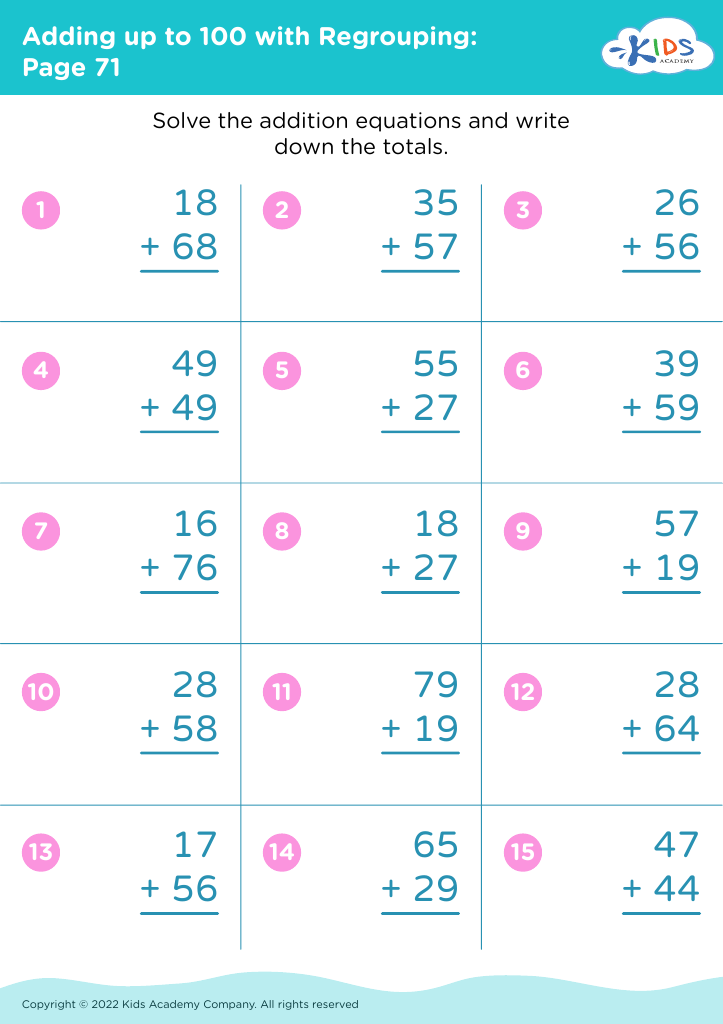Critical thinking skills Addition & Subtraction Worksheets for Ages 6-8
9 filtered results
-
From - To
Enhance your child's math skills with our engaging Critical Thinking Skills Addition & Subtraction Worksheets, designed for ages 6-8. These printable worksheets go beyond basic arithmetic, encouraging young learners to apply critical thinking strategies in solving problems. Your child will develop analytical skills as they tackle a variety of scenarios that require them to think creatively and logically. Each worksheet is crafted to challenge their reasoning abilities, improve their problem-solving skills, and build confidence in mathematics. Perfect for homeschooling or supplemental classroom activities, our resources make learning fun and dynamic. Start empowering your child with essential critical thinking skills today!
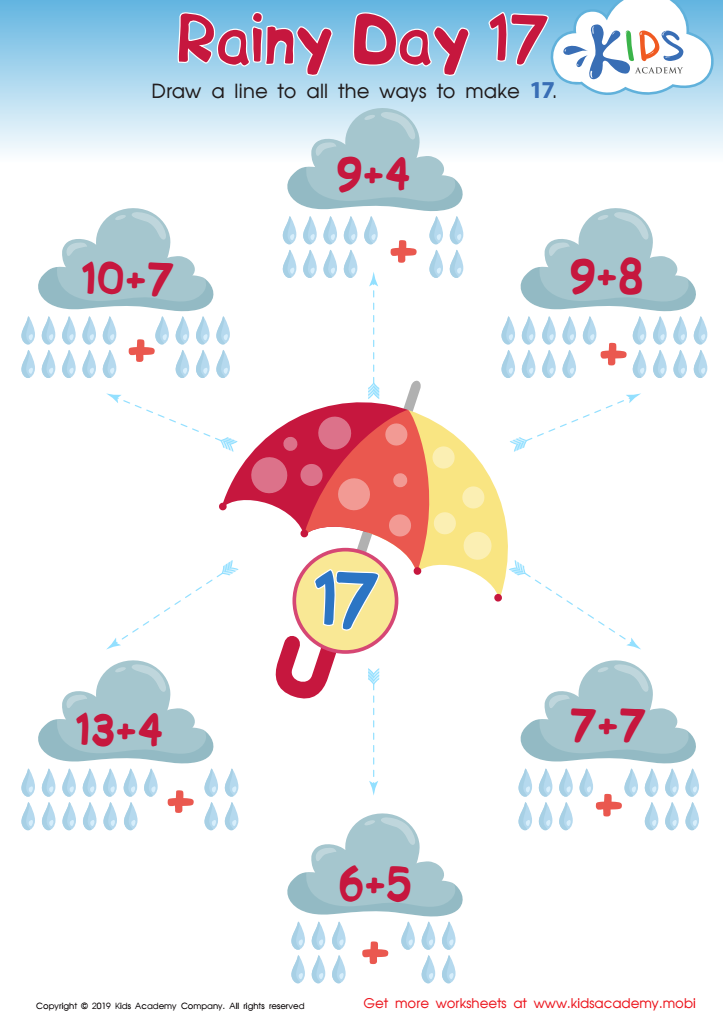

Rainy Day 17 Worksheet
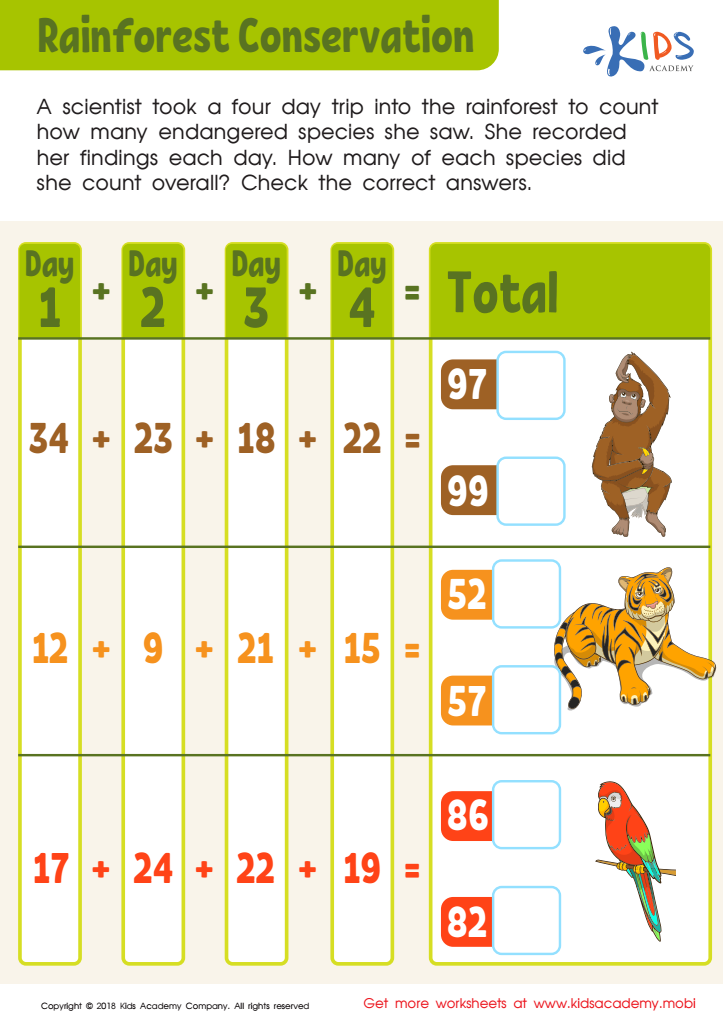

Rainforest Conservation Worksheet
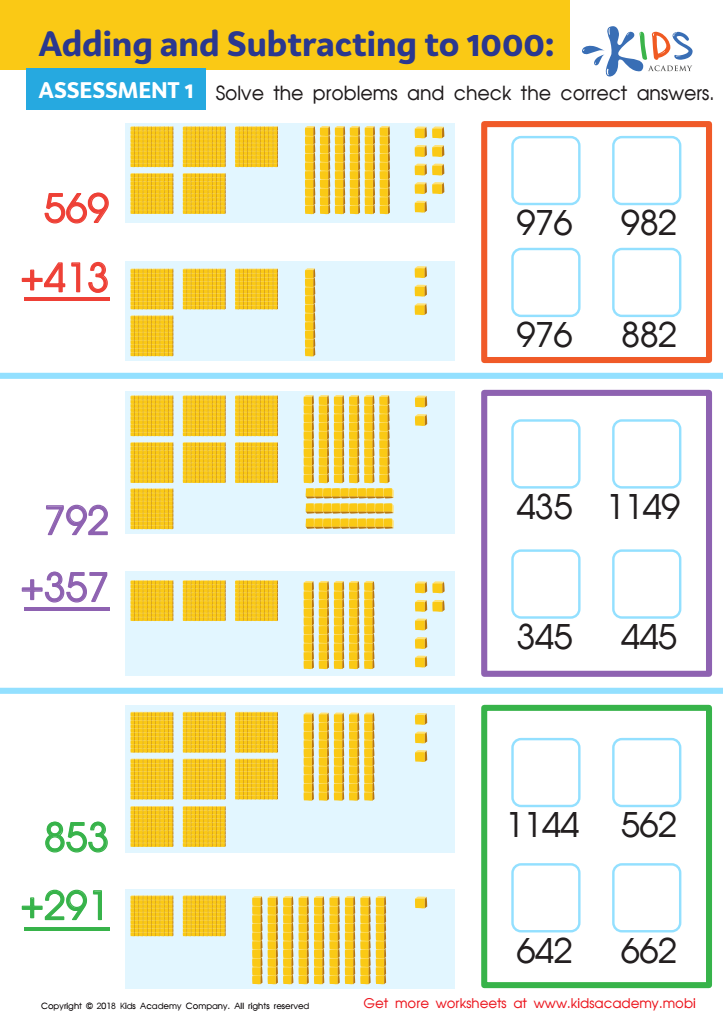

Adding and Subtracting to 1 Worksheet: Assessment 1
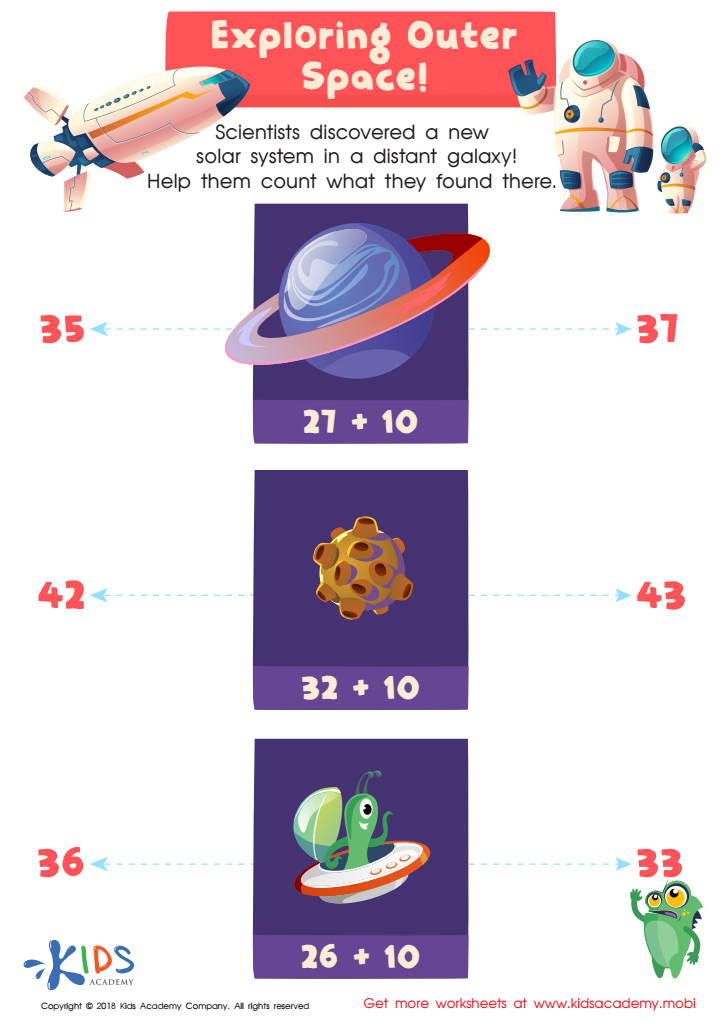

Exploring Outer Space Worksheet
Critical thinking skills in addition and subtraction are vital for children aged 6-8, as this foundational period significantly influences their academic journey and overall cognitive development. As children learn basic arithmetic, engaging them in critical thinking encourages deeper comprehension and connection to real-world scenarios. Rather than merely memorizing facts, children who think critically about addition and subtraction can evaluate different methods for problem-solving, enhancing their numerical flexibility.
When parents and teachers foster critical thinking, they empower children to question the "why" and "how" behind mathematical processes. This comprehension leads to greater confidence when tackling more complex concepts in the future. Moreover, critical thinking promotes perseverance; children become resilient in facing challenges, discovering multiple paths to a solution.
In an era where analytical skills are crucial for success, encouraging critical thinking supports students in not just math but across disciplines. It builds a mindset that values inquiry, reasoning, and a lifelong love of learning—traits essential for personal growth and navigating a complex world. By prioritizing these skills, adults can significantly enrich children’s educational experiences, ultimately preparing them for advanced learning and problem-solving later in life.
 Assign to My Students
Assign to My Students

